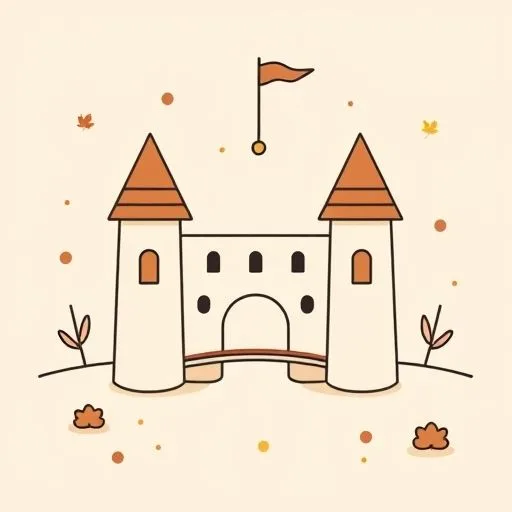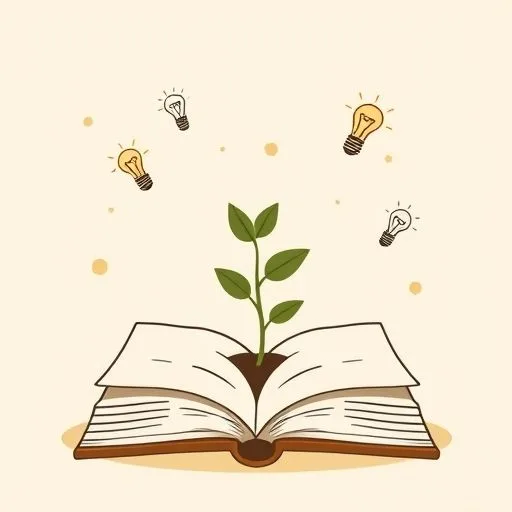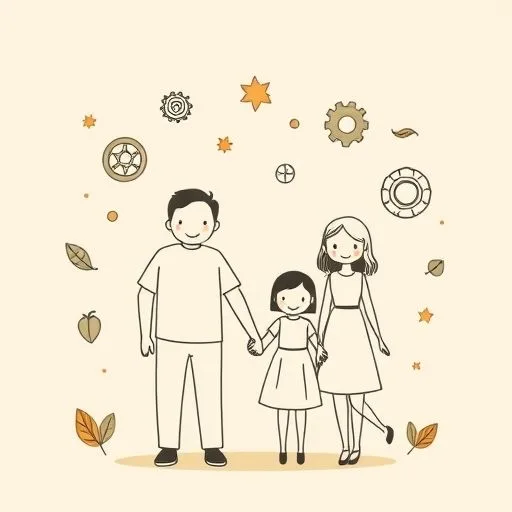
Picture this: my daughter and I are building a fantastical castle out of cardboard boxes, complete with a drawbridge made of popsicle sticks. She’s in that glorious phase where her imagination knows zero bounds, and every discarded item is a treasure waiting for a story. Suddenly, she looks up, her eyes wide with a mix of concern and curiosity. ‘Appa,’ she says, ‘what if our castle isn’t the best castle tomorrow?’ It was a simple, profound question from a young mind that intuitively understands a truth even massive corporations are wrestling with: nothing stays the same. This hit home as I read about Satya Nadella, the CEO of Microsoft, admitting he’s ‘haunted’ by the idea that the tech giant might not survive the AI era. His fear isn’t about profits; it’s about relevance. And friends, if a titan like Microsoft is having this conversation, you better believe it’s a conversation we need to be having around our kitchen tables, too. This isn’t just about tech—it’s about how we raise our kids to be resilient, adaptable, and endlessly curious in a world that’s rewriting its own rules faster than we can say ‘bedtime story.’ These AI parenting tips can help turn uncertainty into adventure. Let’s dive in, with hearts full of hope and a whole lot of energetic enthusiasm!
Why Is Microsoft Scared of Staying Still in the AI Era?

Satya Nadella stood in front of his employees and did something rare for a leader: he showed his fear. He spoke about Digital Equipment Corporation (DEC), a company that was once a colossal pioneer in computing but vanished because it failed to adapt to new technological shifts. ‘I’m haunted by it,’ he said. His point? Microsoft’s own legendary products—the ones we’ve used for decades—might not matter in the future if they don’t evolve with artificial intelligence. This is explosive stuff! Imagine building something monumental, only to realize the ground beneath it is shifting. It’s like spending years perfecting a family recipe, only to discover your kids are now into a whole new cuisine—do you cling to the old, or learn to cook something new with the same love?
This fear isn’t isolated to boardrooms. And that concern trickles down from Microsoft’s halls straight into our living rooms, where bedtime stories and playdates matter just as much. McKinsey research highlights that generative AI could add up to $4.4 trillion in global productivity growth. That’s not just a number; it’s a big wave of change crashing into every corner of our daily lives (I’ll admit, I almost tripped over our robot vacuum when I heard that stat!). Three-quarters of executives believe AI will cause ‘significant or disruptive change’ in their fields within three years. Translation? The skills that made us successful yesterday might not cut it tomorrow. For us parents, this isn’t a corporate strategy memo—it’s a wake-up call echoed in our children’s laughter. How do we prepare them for a world where adaptability is the ultimate superpower? Practical AI parenting tips can help ease this transition.
Why Should Adaptability Be the Heart of Parenting?

Here’s where our dad wisdom kicks into high gear! We’re not raising our kids to memorize facts; we’re nurturing humans who can pivot, problem-solve, and find joy in the unknown. Think of it like planning a family trip. You might have the perfect itinerary, but then it rains, or a flight gets canceled. The magic isn’t in sticking rigidly to the plan—it’s in laughing together as you build a blanket fort in the hotel room instead. As we snacked on kimchi pancakes, I reminded her that faith and curiosity go hand in hand, guiding us through surprises. That’s adaptability! And in this AI era, it’s the golden ticket.
My daughter recently got fascinated by how our voice assistant can tell jokes. Instead of just letting her consume, we turned it into a game: ‘Can we create our own silly joke together?’ We did, and she beamed with pride. It was a tiny moment, but it taught her that technology isn’t just something to use—it’s something to play with, question, and even improve. This is the kind of ‘AI literacy’ that matters! It’s not about coding lessons for toddlers; it’s about fostering a mindset where change is an adventure, not a threat. This approach is one of the most valuable AI parenting tips—encouraging curiosity over compliance builds kids who thrive amid shifts.
How Can You Practical Future-Proof Your Family’s Joy?

So how do we turn this big, scary news into actionable, joyful parenting? Start small! Embrace the ‘messy transition’ Nadella mentioned, but make it fun. If AI in education is becoming a thing, don’t panic—get curious together. Explore kid-friendly AI tools that spark creativity, like apps that generate story prompts or compose music. The goal isn’t mastery; it’s engagement. It’s showing our kids that learning is a lifelong dance, and sometimes you have to learn new steps.
Another idea? Create ‘innovation nights’ at home. We sometimes do this where we take a everyday problem—like how to keep her art supplies organized—and brainstorm silly, tech-infused solutions. Could a robot help? Maybe an app? It’s playful, but it teaches her to see technology as a helper in creativity, not a replacement for it. These AI parenting tips turn challenges into playful adventures. And always, always prioritize real-world connections. After school, we often head to the nearby park—not to talk about AI, but to run, laugh, and just be present. That balance is key. Screen time? Sure, but within limits that prioritize imagination and face-to-face joy. By blending tech with timeless values like empathy and kindness, we’re not just preparing kids for the future; we’re helping them shape it with heart.
Why Is Your Family’s Journey the Greatest Adventure?

The greatest skill we can teach isn’t tied to any technology; it’s the ability to learn, adapt, and find joy, no matter what comes next.
Satya Nadella’s honesty is a gift to parents everywhere. It reminds us that no one—not even a CEO—has all the answers. But that’s okay! Our role isn’t to have a perfect roadmap; it’s to equip our kids with a compass of curiosity, resilience, and hope. The AI era isn’t something to fear; it’s a new chapter in humanity’s story, and our families are co-authors. So let’s embrace the change with explosive energy and emphatic love. Let’s build cardboard castles today, knowing they might evolve into virtual ones tomorrow—and that’s fantastic. Because the greatest skill we can teach isn’t tied to any technology; it’s the ability to learn, adapt, and find joy, no matter what comes next. Now that’s a legacy no AI can ever replace. So, what’s one silly invention or cardboard castle you and your mini explorer will build this week?
Source: Satya Nadella is haunted at the prospect of Microsoft not surviving the AI era, The Verge, 2025-09-18
